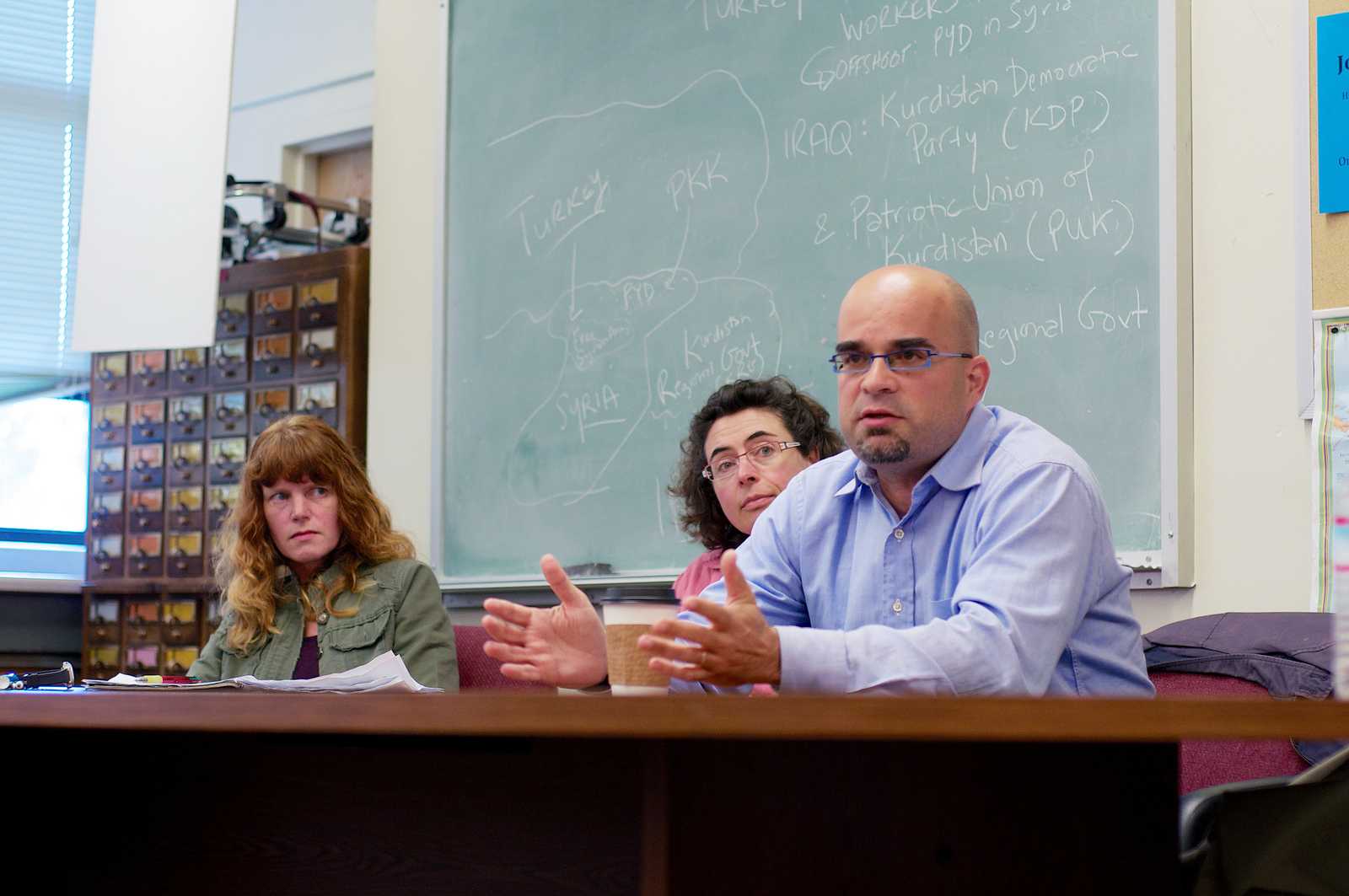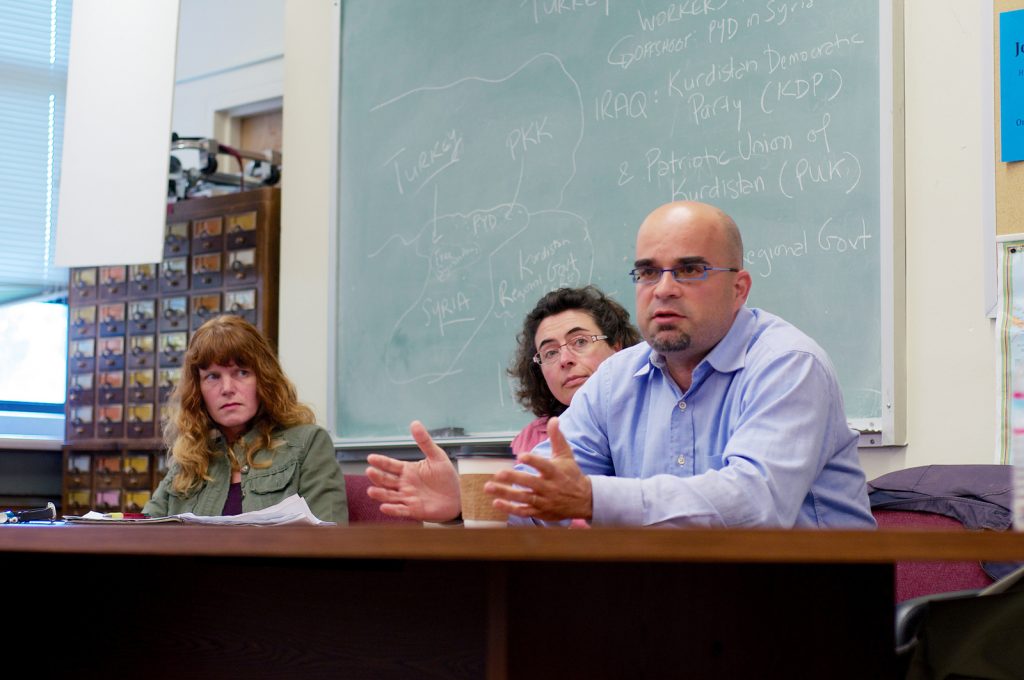
The United Nations announced Monday, that the Human Rights Commission will be investigating the 14 chemical weapon attacks, to find who is responsible for the war crimes.
The U.N. has released an official report that shows “indisputable” evidence that chemical weapons were against civilians, according to U.N. Secretary General Ban Ki-moon. The U.N., however, will not confirm who used the weapons, but states that whichever side used the weapons “violated U.N. protocol” and will be accused of war crimes.
Last Wednesday, six SF State professors discussed their thoughts on the turmoil in Middle East that has come at the end of the “Arab Spring.”
The conflict in Syria and the increasing probability of a U.S. military intervention there weighed heavy on everyone’s mind. Although each of the six professors highlighted a specific Middle East issue, the idea of the Syrian conflict and how to handle it was present in all of their speeches.
“I have a feeling we will be talking about the Syrian War at next year’s forum,” said Lucia Volk, Co-Director of International Relations.
Since last week, Syrian president Bashar al-Assad agreed to hand his chemical weapons to the U.N. for destruction. This idea was presented by Russian president Vladamir Putin and although also backed by Obama. Its effectiveness has been widely criticized by other world leaders, including former presidential candidate John McCain (R-Ariz).
For the last two weeks, Putin has introduced a new political obstacle in the Syrian conflict by rounding world leaders to support putting a halt to U.S. military intervention. So far, that has been successful. As history professor, Anthony D’Agostino said, “It looks like Russia gets to write the last chapter of the Arab Spring,” as Putin has taken center stage as the world’s leading politician on the road to peace in Syria.
Russia has already had its hand in the Syrian conflict, as D’Agostino explained, and Eran Kaplan, professor in Israeli studies eluded to. Russia not only has a long history of selling weapons to Syria, but more recently sells weapons to Iran and indirectly, Lebanese Islamist Shi’a group, Hezbollah. Hezbollah is the reason the tides of war have shifted in Assad’s favor, recently.
D’Agostino explained that Putin “has let it be thought” that the Assad regime has Russian S-300 missiles in its possession, which would be able to take out the destroyers the U.S. Navy would likely use to strike the Assad regime.
Volk, said the U.S.-Russian tensions showed that “the cold war is alive and well.” Since last Wednesday, Putin’s plan of systematically destroying Assad’s chemical weapons stockpile has been disputed widely among world leaders.
The professors agreed that a clean end to the Syrian conflict is becoming impossible and that the current U.N. plan of systematically destroying Assad’s chemical weapons stockpile, is going to be extremely expensive and time consuming, though since the forum last week, Assad has agreed to the resolution.
A political resolution will likely be equally difficult as D’Agostino explained, Assad is going to “shoot them like dogs” if he gets the chance. According to Kaplan, if we pay attention to history, the Assad doctrine is “shoot everything.” Lucia Volk says there is no reason for rebels to try and stop the civil war at this point, they must “either fight or die.”





